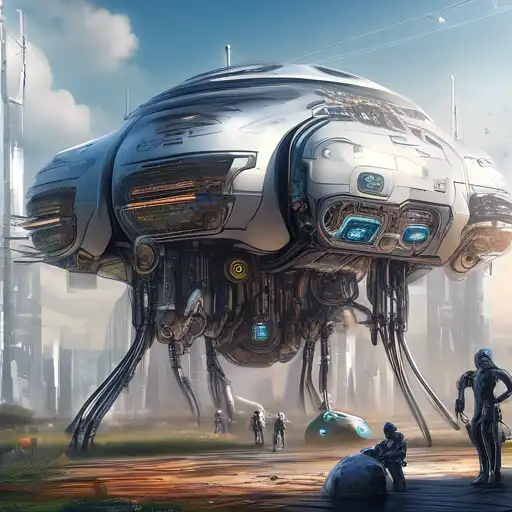Introduction to Artificial Intelligence's Evolution
Artificial Intelligence (AI) has transitioned from a futuristic concept to a cornerstone of modern technology. Today, AI's influence spans across industries, revolutionizing how we live, work, and interact. This article delves into the current state of AI, exploring its advancements, challenges, and the potential it holds for the future.
The Current Landscape of AI
AI today is characterized by rapid advancements in machine learning, natural language processing, and robotics. Companies and researchers are pushing the boundaries, creating systems that can learn, adapt, and potentially outperform human capabilities in specific tasks.
Machine Learning Breakthroughs
Machine learning, a subset of AI, has seen significant progress. Algorithms can now process vast amounts of data, learning from patterns to make predictions or decisions without being explicitly programmed for the task.
Natural Language Processing (NLP)
NLP has enabled machines to understand and respond to human language, powering virtual assistants and chatbots that provide seamless customer service experiences.
Challenges Facing AI Development
Despite its progress, AI faces several challenges, including ethical concerns, data privacy issues, and the need for substantial computational resources. Addressing these challenges is crucial for sustainable AI development.
Ethical Considerations
The rise of AI brings forth questions about morality, bias in algorithms, and the future of employment. Ensuring AI develops in a way that benefits humanity requires careful consideration and regulation.
The Future of AI: What Lies Ahead
The potential of AI is boundless. From healthcare to environmental protection, AI's applications could solve some of the world's most pressing problems. However, realizing this potential depends on continued innovation and collaboration across disciplines.
AI in Healthcare
AI's ability to analyze complex medical data could lead to breakthroughs in diagnosis and treatment, offering personalized medicine and improving patient outcomes.
AI and Environmental Sustainability
AI can optimize energy use, reduce waste, and monitor environmental changes, playing a pivotal role in combating climate change.
Conclusion
As we stand on the brink of a new era shaped by AI, it's clear that its impact will be profound. By navigating the challenges and harnessing its potential, we can ensure a future where AI serves as a force for good, transforming our world in ways we are just beginning to imagine.
For more insights into the evolving world of technology, explore our technology trends section.
